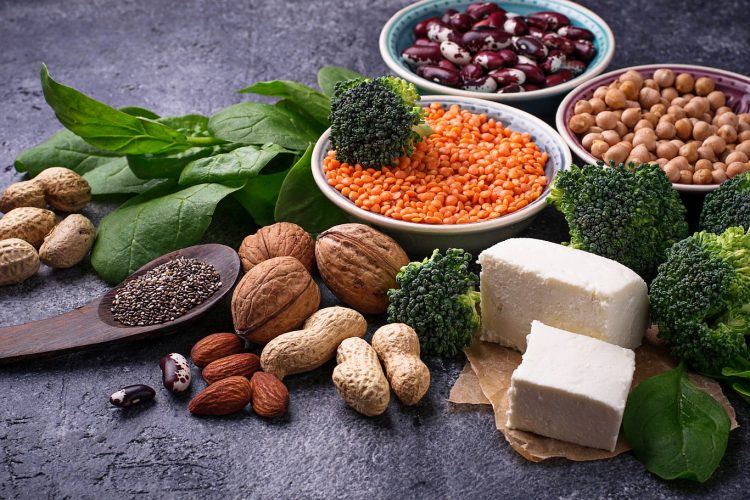Introduction
Plant-based diets are gaining popularity worldwide for their ethical, environmental, and health benefits. Whether fully vegan or mostly plant-forward, these diets emphasize fruits, vegetables, legumes, grains, nuts, and seeds. While rich in fiber, antioxidants, and many essential nutrients, plant-based diets raise an important question: Can they provide all the necessary micronutrients the body needs for optimal health?
Micronutrients—vitamins and minerals—are required in small amounts but play critical roles in immunity, metabolism, energy production, bone health, and cognitive function. A well-planned plant-based diet can meet most of these needs, but there are certain nutrients that deserve extra attention.
Micronutrients Abundant in Plant-Based Diets
Many micronutrients are readily available in plant foods. In fact, plant-based eaters often consume more of certain nutrients than those on omnivorous diets.
1. Vitamin C
Found in: Citrus fruits, strawberries, bell peppers, broccoli, and kiwifruit.
Function: Supports immunity, collagen production, and iron absorption.
2. Folate (Vitamin B9)
Found in: Leafy greens, legumes, asparagus, and avocados.
Function: Crucial for DNA synthesis and cell growth, especially in pregnancy.
3. Magnesium
Found in: Nuts, seeds, whole grains, legumes, and dark chocolate.
Function: Supports muscle and nerve function, blood pressure, and bone health.
4. Potassium
Found in: Bananas, potatoes, tomatoes, and leafy greens.
Function: Regulates blood pressure and fluid balance.
5. Vitamin K
Found in: Kale, spinach, Brussels sprouts, and broccoli.
Function: Important for blood clotting and bone health.
Micronutrients That May Be Lacking in Plant-Based Diets
Despite the abundance of nutrients in plant foods, there are several micronutrients that can be more challenging to obtain from plants alone.
1. Vitamin B12
- Why it matters: Essential for red blood cell formation, neurological function, and DNA synthesis.
- Why it’s lacking: Naturally found only in animal products.
- Solution: Regular supplementation or fortified foods (plant milks, cereals, nutritional yeast).
2. Iron
- Why it matters: Supports oxygen transport and energy production.
- Plant-based challenge: Plant iron (non-heme) is less bioavailable than animal-based (heme) iron.
- Solution: Consume iron-rich plant foods (lentils, tofu, spinach) with vitamin C to enhance absorption.
3. Zinc
- Why it matters: Important for immunity, wound healing, and DNA synthesis.
- Plant-based challenge: Absorption is inhibited by phytates in grains and legumes.
- Solution: Soaking, sprouting, or fermenting grains and beans can improve zinc availability. Include foods like pumpkin seeds, oats, and chickpeas.

4. Calcium
- Why it matters: Essential for strong bones, nerve signaling, and muscle contraction.
- Plant-based challenge: Some plant sources contain oxalates that inhibit calcium absorption.
- Solution: Eat low-oxalate, calcium-rich plants like broccoli, bok choy, tofu (with calcium sulfate), almonds, and fortified plant milks.
5. Omega-3 Fatty Acids (EPA and DHA)
- Why it matters: Support brain health, reduce inflammation, and benefit heart health.
- Plant-based challenge: ALA (from flaxseeds, chia, walnuts) must be converted to EPA/DHA—an inefficient process.
- Solution: Consider algae-based DHA/EPA supplements for optimal brain and heart support.
6. Iodine
- Why it matters: Critical for thyroid hormone production.
- Plant-based challenge: Iodine content in plant foods varies depending on soil.
- Solution: Use iodized salt or consume seaweed in moderation (watch for excess iodine).
Can a Well-Planned Plant-Based Diet Meet All Micronutrient Needs?
Yes, with proper planning and mindful choices, a plant-based diet can provide all essential micronutrients. However, unlike omnivorous diets where some nutrients are more easily absorbed, plant-based diets often require:
- Awareness of which nutrients need special attention.
- Diverse food choices across legumes, grains, fruits, vegetables, nuts, and seeds.
- Use of fortified foods and supplements, especially for B12, vitamin D, and omega-3s.
- Smart preparation methods like soaking or fermenting to enhance nutrient availability.
Plant-based nutrition is not about simply avoiding animal products—it’s about making nutrient-dense choices that work in harmony with your body’s needs.
Conclusion
A plant-based diet can absolutely support optimal health, but it requires informed and intentional choices. While most micronutrients are readily available from plants, a few—such as vitamin B12, iron, and omega-3s—may need special attention through fortified foods or supplements.
With variety, balance, and nutritional awareness, plant-based eaters can thrive without missing out on essential vitamins and minerals. The key is not just eating “plant-based,” but eating smart and strategically within that framework.

















































